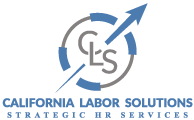California employment laws require an employer to conduct a “prompt and thorough” investigation of any alleged conduct. Failing to conduct an investigation after a claim, leaves the employer exposed in subsequent legal action. Different types of complaints require different initial responses. Still, all employee complaints need to be taken seriously – regardless of whether it’s accusations of harassment, discrimination, retaliation, ethical impropriety, or other claims.
How you respond can help diffuse a tense situation, or it can add fuel to the fire.
Top Three Investigation Problems Found by California Courts:
#1: Delayed Investigation#2: Improperly Designated Investigator (such as an internal investigator having a conflict of interest)#3: Unqualified Designated Investigator (investigator must be either a licensed CA attorney or licensed CA private investigator with workplace investigation experience.)
Conducting a Good Investigation
- Work promptly: A prompt response makes the difference.
- Conduct a complete investigation:
- Follow a standardized procedure: It helps make execution easier and the investigation more objective.
- Choose a licensed investigator: For very serious reports, hire an outside party.
- Interview: The investigator should identify and interview all the parties related to the complaint.
- Document: Document everything. This includes verbal communications, supporting documents, witness statements, investigation summaries, and your organization’s responses.
- Conclude: Based on the evidence you gather, your organization needs to make an action plan to prevent future problems and follow up with the reporter about the findings of the investigation and your organization’s response.
Why Should You Care About Workplace Complaints and Investigations?
Who can perform workplace investigations?
Under California law, unless the person who conducts the workplace investigation is a licensed private investigator or qualifies for an exemption, conducting such an investigation is prohibited by law. (Cal. B&P Code § 7523, et seq.)
These requirements apply to investigations performed by both private and public employers.
There are two categories of exemptions that have an application to workplace investigations. The first is attorneys. Under the law, attorneys “performing his or her duties as an attorney at law” are exempt from having to be licensed, private investigators. (Cal. B&P Code § 7522(e).) Thus, attorneys, performing their duty as an attorney, are authorized by law to conduct investigations, including workplace investigations.
Another group exempt from obtaining a private investigator’s license is employees who conduct internal investigations for their employer. For example: a human resources professional.
While external HR and other consultants may be willing and able to perform workplace investigations, the law prohibits them from doing so.
What are the consequences of violating the licensing requirements?
Under California Law, any person who is not exempt and not licensed and conducts an investigation is “guilty of a misdemeanor punishable by a fine of five thousand dollars ($5,000) or by imprisonment in the county jail not to exceed one year, or by both that fine and imprisonment.” (Cal. B&P Code § 7523(b).) Furthermore, a person who “knowingly engages a nonexempt unlicensed person” to conduct an investigation can be subjected to the same criminal punishment. (Id.) In addition to the potential criminal penalties, a person who engages in this conduct can have an injunction issued against them and a civil fine of up to $10,000 imposed. (Cal. B&P Code § 7523.5)
In addition to the potential criminal and civil penalties, if the matter that is the subject of the investigation results in a grievance, civil service appeal, or civil lawsuit, there is the risk that the results of the investigation will be invalidated because of the “illegal” nature of the investigation. The invalidation of an investigation can have significant consequences.
Such investigations expose the investigator and their client to potential criminal and civil liability. Furthermore, if disputes arise regarding or out of the investigation the client is at risk that the investigation will be invalidated because it was conducted by someone who was not authorized to perform such investigations.
Every employer should have a licensed investigative resource on tap because when the need arises, you will not have a sufficient opportunity to conduct the research and selection process.
At California Labor Solutions (CLS), we take HR consulting to the next level by offering affordable premium California licensed workplace investigations. We stand by your side, providing expert guidance at every step along the way – from the initial complaint through the investigation and corrective action process.

